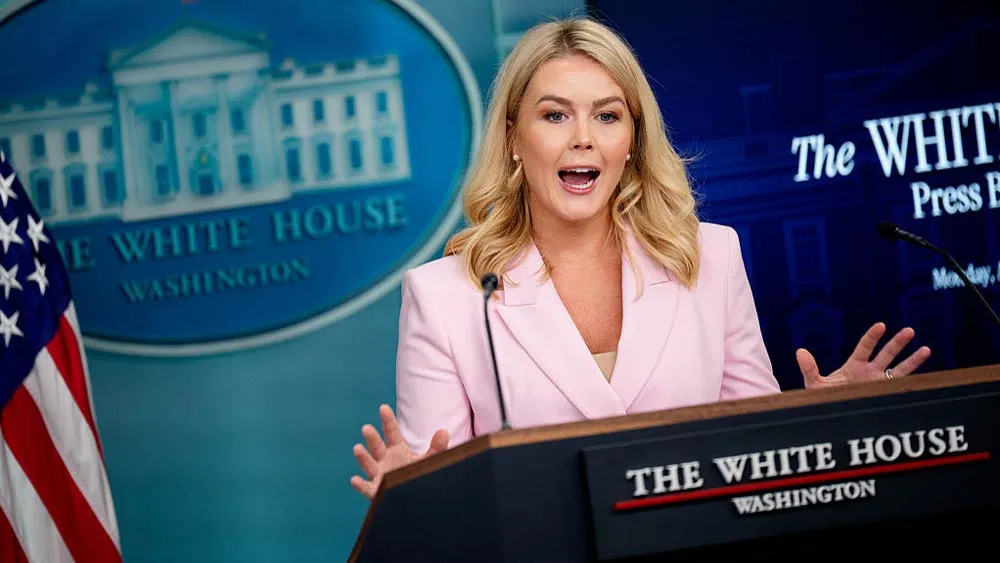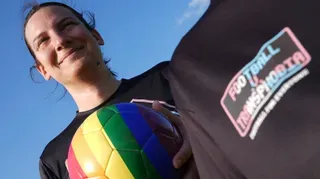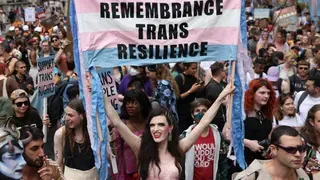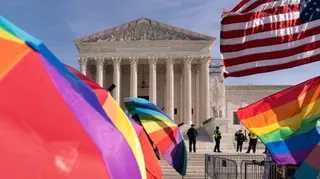July 24, 2012
Mitt Romney's NAACP Speech Shows Some Degree of Marriage Split
Chris Sosa READ TIME: 4 MIN.
An organ played ''God Bless America'' as Mitt Romney took the stage at the NAACP's annual convention in Houston July 11. The audience stood to welcome him, but for most of the presumptive Republican presidential nominee's speech, the reception was chilly, and perhaps not surprisingly so.
After all, the National Association for the Advancement of Colored People, which is the country's oldest and largest civil rights organizations, includes some of President Barack Obama's strongest supporters. Romney had his work cut out for him trying to convince the organization that he - and not America's first black president - would be better for the African-American community.
Nevertheless, Romney gave it his best shot and struck an inclusive tone early in his speech, telling the audience that he hopes ''to represent all Americans of every race, creed and sexual orientation.''
Romney's mention of sexual orientation was surprising. This speech, which was televised on most major cable news channels, was perhaps the highest profile speech so far in the campaign that Romney has brought up LGBT issues. For the gay community, Romney's specific mention of sexual orientation seemed like an olive branch at first, but that was quickly overshadowed by what followed.
''As president I will promote strong families and I will defend traditional marriage,'' Romney said. Despite the NAACP officially endorsing marriage equality two months ago, Romney's vow to defend traditional marriage was greeted with cheers from some audience members.
Romney's position on marriage equality is nothing new. Since running for president, he has taken a hardline stance on the right of same-sex couples to marry, voicing opposition not only to same-sex marriage but to civil unions that provide many of the same state-level rights as marriage.
Although Romney was booed at three points during his speech, including when he vowed to dismantle ''Obamacare,'' the reaction from the audience to his words on marriage shed light on some degree of division within the NAACP after the organization's official decision to join Obama in his support for marriage equality.
Some of those cheering Romney's line about marriage were members of a group of black pastors who traveled to the convention to protest the organization's stance on marriage equality. Led by Rev. William Owens, who also works for the National Organization of Marriage, the Coalition of African-American Pastors has accused the NAACP of forgetting the principles the group was founded on 103 years ago.
Owens claims his coalition has more than 1,300 pastors and has been vocal in his opposition to marriage equality, having garnered headlines for comparing same-sex marriage to bestiality in the past.
"This is supposed to be an organization for black people who were beaten, who were mistreated and who were enslaved," Owens said of the NAACP in an interview with The Huffington Post.
Although Owens certainly knows how to attract attention, he and other hardline opponents to marriage equality appear to be part of a shrinking minority.
Indeed, a CNN/ORC International Survey released in June found 54 percent of Americans believe same-sex marriage should be recognized with 42 percent opposed. Those numbers coincided with a 21 percent jump since 2010 in those claiming to know someone who is gay, which has increased from 49 to 60 percent. In his interview with The Huffington Post, Owens said he did not know any same-sex couples personally.
Sharon Lettman-Hicks, executive director and CEO of the National Black Justice Coalition, who was at the convention in Houston, says work must still be done to change hearts and minds within the African-American community, but that is why the NAACP's support is so important.
''I don't want for anyone to believe for a minute that the NAACP is walking back from its position [on marriage equality],'' says Lettman-Hicks.
LGBT advocates seem to agree that opponents like Owens are losing - and know it.
''Those still leading that fight [against marriage equality] are punching hard and probably because they know they're on the losing side of it,'' says R. Clarke Cooper, executive director of Log Cabin Republicans. ''We're winning, and why some people are so avid to go down with this ship is beyond me.''
For Cooper, Romney's decision to tread into territory as controversial as marriage equality was unnecessary.
''Romney was certainly looking for ways to build bridges, but the marriage issue is divisive and could have been left out,'' says Cooper, who praised the rest of Romney's speech.
Although Vice President Joe Biden appeared at the convention the following day, he avoided the issue of marriage and LGBT rights altogether and received a much warmer reception. Biden was only booed when it came time to wrap up his speech.
The magnitude of the rift among African-Americans over the NAACP and Obama's support for marriage equality may be far less than anything Owens might imagine, says Michael Cole-Schwartz, director of communications for the Human Rights Campaign.
''Any divide that exists is rapidly diminishing,'' Cole-Schwartz says. ''I think a lot of that has to do with the president's leadership.''
However, that vocal minority remains organized and supported by groups such as NOM, which from early on have sought to divide the Democratic base, and in particular African-Americans, over the issue of same-sex marriage. And while their numbers and influence may be diminishing, they are no less boisterous, particularly during an election year.
''You can't stop an individual's heart and mind,'' says Lettman-Hicks. But, she warns of hardline opponents, ''If we think they've gone away, we are confused.''






